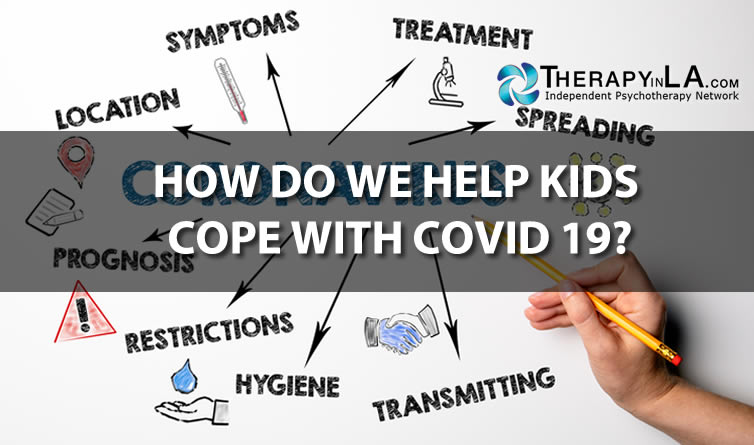HOW DO WE HELP KIDS COPE WITH COVID 19?
HOW DO WE HELP KIDS COPE WITH COVID 19?
The previous blog about coping with the COVID 19 pandemic was focused on us adults. How about helping our children?
First, we need to consider how staying at home is impacting kids. As we know our own kids, are they responding as they usually do at times of higher stress? Are their responses the same as usual, but perhaps more intense (as often the case with us adults)? If your child tends to express frustrations and “complain” verbally, are they doing so, but with greater frequency and/or intensity? If your youngster is physically restless and more active when under duress, has this escalated? Or if your child retreats into solitary withdrawal, such as with video games or screen time, is he being even more like a passive hermit? If he tends to squabble with siblings, is this happening even more and with greater frequency?
Are you seeing some new indications of difficulty for your child? Very common ones include: more active/aggressive behavior, sleep disruptions, issues with food (over-eating, under-eating, craving more sweets/snacks), more challenges and refusals to usual routines and expectations, avoidance of tasks such as school assignments or chores around the house. Is your child avoiding social interactions that he/she usually appreciates, like dinner-time conversations or engaging with friends and family members (digitally now, of course). Is your child more clingy and seeking attention/affection, or more withdrawn and disengaging with the adults in the house?
Intervening with kids requires first and foremost that we parents care for ourselves. Are we calming and easing our own anxiety (see the previous blog)? Are we attending to our own mood and behavior, which deeply impacts our kids? Are we containing TV and news watching, so that the home environment is not continually contaminated with the anxiety, fear and uncertainty surrounding this crisis? If the news channels are on the TV frequently, that sets a tone that is far from calming. Are we doing our best to maintain our own optimism and hope, at least in our interactions with the kids, but also avoiding false hope and unrealistic predictions/reassurances?
In talking with kids, considering their development is crucial. Younger children comprehend less, absorb less, and attend for shorter periods of time. Therefore, explanations need to be simple, brief. As children get older (elementary school and middle school age), they can usually understand more, absorb more information, and engage for a bit longer. If you start with brief interactions and are open to questions or comments from your kids, they will indicate if they want more information and the depth of information they will need. Some kids (more analytical, curious ones) may thrive on information, while other kids thrive on less information and more affection/reassurance. Your child’s questions and curiosity will guide you. If you err perhaps, it’s often better to err on the side of being briefer, and letting your child ask for more info. Of course, always let the child know you are open to their questions and concerns.
It is helpful of maintain routines to provide structure and predictability. And, in this new set of circumstances, to establish some new ones, such as daily exercise, regular times for schoolwork to be done, limits on TV and screen time, establishing alternative ways of entertaining oneself.
Some families have used this time to establish new ways of connecting with each other regularly: family dinners more regularly, with conversation during those times. Shared play: board games, card games, outside play and recreation, movie watching. One family with two adolescent children are spending more time together over dinner, including conversations about how this situation is challenging them all, followed by a frequent watching of movies/shows often suggested by the kids. This gives the parents insight into what the kids are interested in, but also opportunities for discussions about some quite meaningful issues. Sharing of humor and laughter is healing and relieving for all. How about a simply funny, light-hearted film/show? Some families are creatively trying online gatherings to maintain connections with relatives and friends.
In all of this, a message of altruism is central: that we are sheltering at home to protect ourselves, yes, but also to protect others in our community. That includes elders in our own families, and elsewhere who are more vulnerable, as well as people with health conditions that also make them more vulnerable. There is an opportunity in all of this to emerge more connected and caring with our family members and others we care about.
IPN members are available of course during this time to provide support, input, and education to parents about helping their children. All of us are providing some combination of telephone and/or video discussions. Please feel free to reach out to us.
Dr. Solomon is a clinical psychologist in private practice in Torrance, CA. A member of the Independent Psychotherapy Network, he can be reached at 310 539-2772 or dralanms@gmail.com
Copyright 2020 by Alan M. Solomon, Ph.D.

